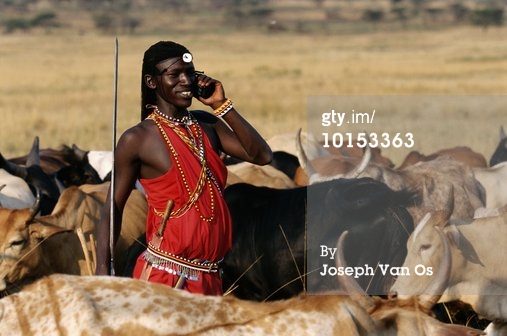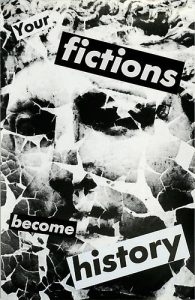Any feedback, questions, comments are not expected (hi lonely blog), but would be greatly appreciated, as I still have more than a week before I need to submit and a little less than month before I present.
I was invited to speak at a small graduate student colloquium to discuss my work. The topic is defining the Human. I was asked to speak of this in terms of how I am defining the Human through media. There will be one other speaker speaking from a Media perspective and two others speaking of the Human through Rhetoric.
I wasn’t sure what I wanted to say, and then, re-reading McLuhan amidst the forever reading I’m doing of Fanon it hit me. I decided to write my thoughts out as a letter to both of them, as a performative exercise, using primarily the following two texts.
Playboy Interview:
http://www.nextnature.net/2009/12/the-playboy-interview-marshall-mcluhan/
Fanon French Introduction:
http://classiques.uqac.ca/classiques/fanon_franz/peau_noire_masques_blancs/peau_noire_masques_blancs_intro.html
I assume a base knowledge of “The Medium is the Message“, and Fanon’s general arguments regarding the Human and the Black Man. This is something I’ve explored previously in a graduate seminar. You can find those thoughts here: http://jadedid.com/ancyhu/
The Letter-First Draft
Dear Frantz & Marshall,
Frantz, I’d like to start with you. You started Black Skin, White Masks, with “L’explosion n’aura pas lieu aujourd’hui. Il est trop tot…
ou trop tard” (5).
“Don’t expect to see any explosion today. It’s too early… or too late” (xi).
It happened today. I exploded and built myself anew, just like you said I would. But Marshall, I couldn’t have done it without you. I know the two of you never officially met, however, you downloaded your consciousness into words on the page. I then proceeded to upload your data into my own data storage facility, and I am downloading it here now.
Marshall, I think you said something along the lines of technology is the extension of the human in the Medium is the Massage, and black bodies are left outside of technology in the Playboy Interview. Frantz, you said the black man is not fully human in Black Skin, White Masks. I think that the black man/person being less than human is directly linked to their inability to be seen as connected to technology. What I mean to say is that, if it is true that what is human is determined by the negation of the black man, where man here means universal human body, Frantz, and media technologies are all just an extension of the human body, as you say Marshall, then it stands to reason that to understand the Human we must also understand the relationship between the black man and technology. In fact, if we look at technology as the extension of man, it seems we must begin to see slaves as the foundational technology of the west (especially the United States). If we do this, we begin to see how their bodies, and their humanness, were subsumed into a system of commerce so easily, like any other media technology. Rather than being human in and of themselves, as bodies of technology they increased the size, scale and pace of agriculture because they were the machines in the garden, that enabled the taming of the frontier as they extended the body of their mostly white slaveholders allow for work, holdings, time and capital to grow at a new pace and across more space. What tickles me about this is that both of you think an over extension of the body leads to psychosis. There is no difference between the two of you on this. The psychosis for both of you is predicated of on a loss of self in relation to the embodied body.
The difference instead seems to be, if I am understanding you both correctly, that the causes and results of the manifestation of the psychosis differs from the white man to the black man. The black man’s psychosis is in the realization that he can never catch up to the white man in his quest for more and more technology even as the white man tells him that is what he needs to do. Even the rhetoric of the digital divide places him in this manner! The white man, as he increasingly goes out of his way to increase the distance between him and those bodies that are more rawly technological, ends up overextending himself to the point of losing sight of the actual body. In doing so he continues to remove the capability of seeing the Black man as human, even as he, the white man, longs to go back to an imagined before time where there was simply the Human. The anger from the side of the white man, then is that the black man is so much closer to a simpler less extended, less technologically mediated life. A second layer of anger comes from the imperative that all the media force the black man to adapt as though it were a compulsion. If we take a step towards media content we see that the aspirational messages aimed at the black man that come from places of political power (outside entertainment power) always tell the black man to do better, and reach higher, and achieve more. The way to do this? Try to be better than other black people, be like us and reach for the world of the white man.
Obviously, this is a little bit crazy. Even if you aren’t black, I am sure you can understand how the contradicting messages from media content to media technology might lead to a psychosis brought on by no matter how hard a black person tries to reach the world of the white man, it can never be touched by his almost human hands.
But, this is why I am writing both of you. I think both of you are hinting towards is a level of consciousness that is innate to humanity that the black man has better access to, but the message of mediation is that he is to be blinded to it and removed from it because to have the realization on a total scale would be an annihilation of the current social order.
Marshall, you said,
“The cultural aggression of white America against Negroes and Indians is not based on skin color and belief in racial superiority, whatever ideological clothing may be used to rationalize it, but on the white man’s inchoate awareness that the Negro and Indian — as men with deep roots in the resonating echo chamber of the discontinuous, interrelated tribal world — are actually psychically and socially superior to the fragmented, alienated and dissociated man of Western civilization,”
Are you not speaking directly to Frantz? It is the mistake of the black man to not already realize he is the defining instances of humanness and humanity, for it is he who has access to the zone of non-being.
Ah, I realize you, Frantz, must clarify this for me. You said,
Dussé-je encourir le ressentiment de mes frères de couleur, je dirai que le Noir n’est pas un homme.
Il y a une zone de non-être, une région extraordinairement stérile et aride, une rampe essentiellement dépouillée, d’où un authentique surgissement peut prendre naissance. Dans la majorité des cas, le Noir n’a pas le bénéfice de réaliser cette descente aux véritables Enfers.
L’homme n’est pas seulement possibilité de reprise, de négation. S’il est vrai que la conscience est activité de transcendance, nous devons savoir aussi que cette transcendance est hantée par le problème de l’amour et de la compréhension. L’homme est un OUI vibrant aux harmonies cosmiques. Arraché, dispersé, confondu, condamné à voir se dissoudre les unes après les autres les vérités par lui élaborées, il doit cesser de projeter dans le monde une antinomie qui lui est coexistante (6).
Running the risk of angering my black brothers, I shall say that the Black is not a man.
There is a zone of nonbeing, an extraordinary sterile and arid region, and incline stripped bare of every essential from which a genuine new departure can emerge. In most cases the black man cannot take advantage of this descent into a veritable hell.
Man is not only the potential for self-consciousness or negation. If it be true that consciousness is transcendental, we must also realize that this transcendence is obsessed with the issue of love and understanding. Man is a “yes” resonating from cosmic harmonies. Uprooted, dispersed, dazed, and doomed to watch as the truths he has elaborated vanish one by one, he must stop projecting his antinomy into the world” (xii).
While Frantz, you started with the Transcendental consciousness, Marshall, it is where you ended, your interview,
“I expect to see the coming decades transform the planet into an art form; the new man, linked in a cosmic harmony that transcends time and space, will sensuously caress and mold and pattern every facet of the terrestrial artifact as if it were a work of art, and man himself will become an organic art form.”
Both of you see this movement towards the transcendental starting with the tribal, or black man. And both of you see the inevitable violence the path of technology leads us on if we continue to see certain as wretched and others as technologically superior, not as their ability to see themselves as technology, but because they are able to master, contain and control the messages of those mediums, and make them obsolete. (As an aside, if we see the black slave as pure technology, and technologies as building on top of each other making previous versions obsolete, the black man and the indian never had a chance.) When I read this line,
The one inexorable consequence of any identity quest generated by environmental upheaval is tremendous violence. This violence has traditionally been directed at the tribal man who challenged visual-mechanical culture, as with the genocide against the Indian and the institutionalized dehumanization of the Negro.
I wasn’t sure who I was reading until I reminded myself that Marshall, you were more interested in indians. Had it been you Frantz, I think you would have said Arab. Marshall, You spoke then, of the possibility of the negro being exterminated. As though you saw this on the horizon as well Frantz, you had already written a response:
Je demande qu’on me considère à partir de mon Désir. Je ne suis pas seulement ici-maintenant, enfermé dans la choséité. Je suis pour ailleurs et pour autre chose. Je réclame qu’on tienne compte de mon activité négatrice en tant que je poursuis autre chose que la vie ; en tant que je lutte pour la naissance d’un monde humain, c’est-à-dire d’un monde de reconnaissances réciproques.
Celui qui hésite à me reconnaître s’oppose à moi. Dans une lutte farouche, j’accepte de ressentir l’ébranlement de la mort, la dissolution irréversible, mais aussi la possibilité de l’impossibilité (177).
I ask that I be taken into consideration on the basis of my desire. I am not only here-now, locked in thinghood. I desire somewhere else and something else. I demand that an account be taken of my contradictory activity insofar as I pursue something other than life, insofar as I am fighting for the birth of a human world, in other words, a world of reciprocal recognitions. He who is reluctant to recognize me is against me. In a fierce struggle I am willing to feel the shudder of death, the irreversible extinction, but also the possibility of impossibility (193).
Now, here I am thinking the three of us can push this a little bit further. If we acknowledge that the black body represents pure technology, as the slave, and technology is simply a way that we extend our own human bodies, and the medium that we use for this extension has its own message, then I think we can say the medium that represents humanity is the black man. Just as the lightbulb is pure information, to understand how we have come to define the human, especially as we try to understand the human through media technology, we must first understand the relation of humanity to the black body, the body that I think became a cyborg long ago.
I think the next step for me is to expand this conversation and explore it through the role of black women specifically, looking specifically at societies current causes of psychosis, Digital Media.
Sincerely,
Jade




